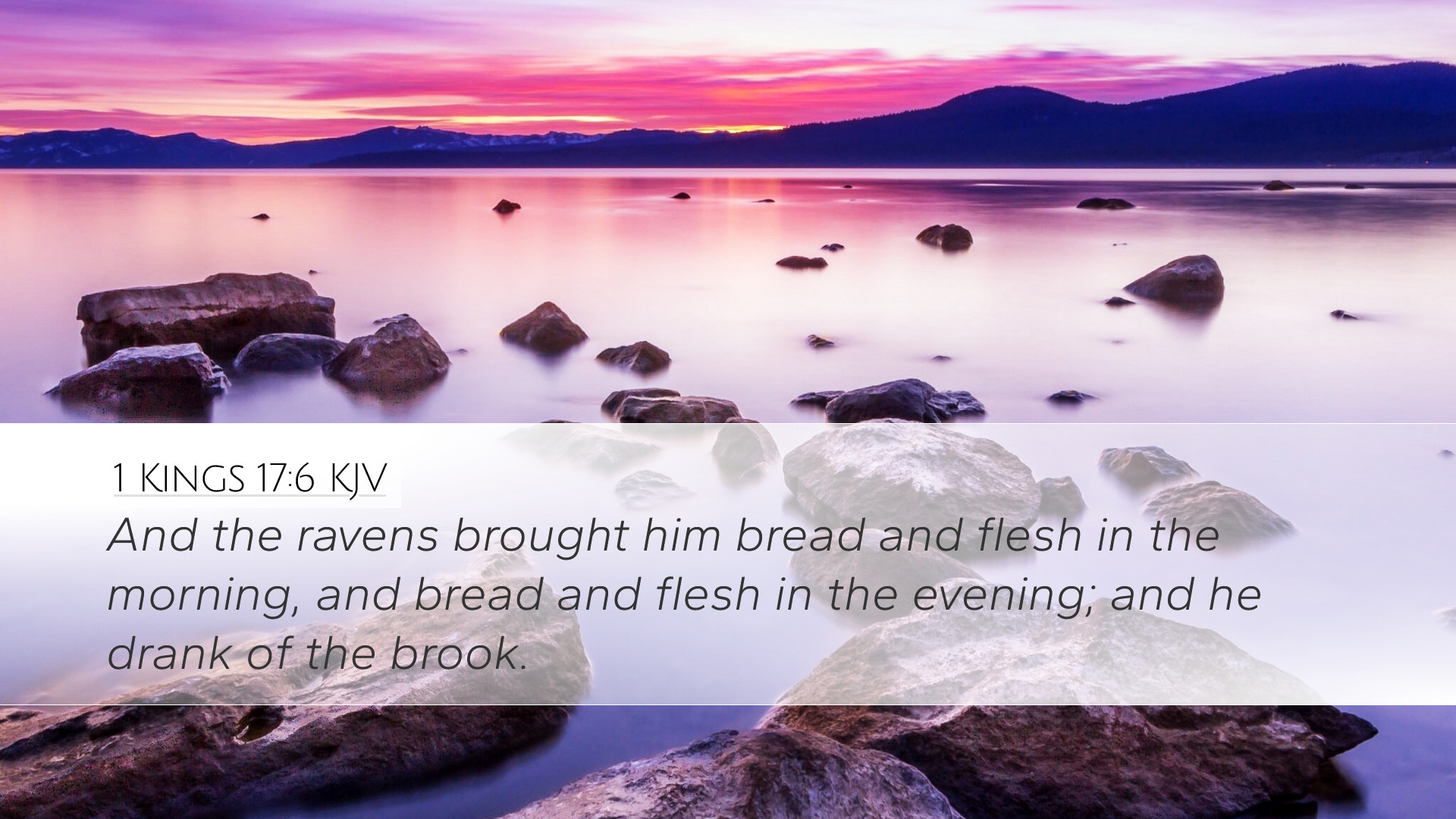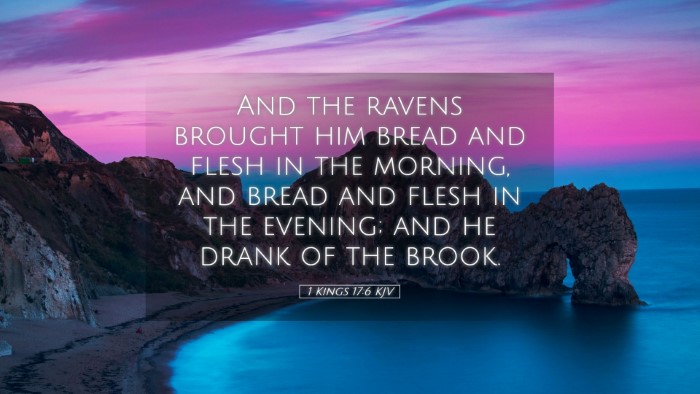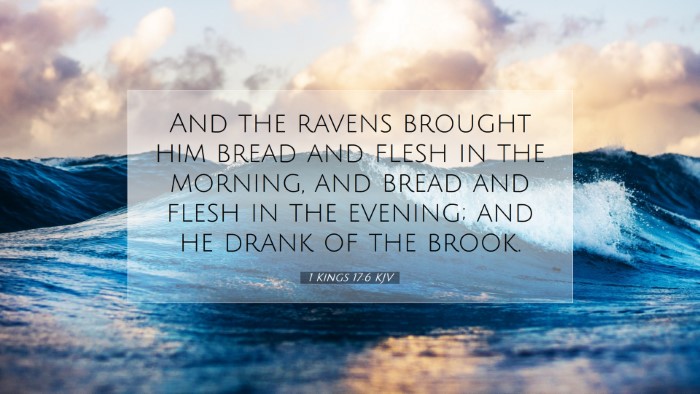Bible Commentary on 1 Kings 17:6
Verse: "And the ravens brought him bread and flesh in the morning, and bread and flesh in the evening; and he drank of the brook." (1 Kings 17:6)
Contextual Overview
This verse occurs during a critical period in the ministry of the prophet Elijah. After proclaiming a drought upon Israel as divine judgment against Ahab's idolatry, Elijah is directed by God to withdraw to the brook Cherith. Here, he experiences God’s provision in a miraculous way, highlighting key themes such as divine sustenance, obedience, and faith amidst adversity.
Commentary Insights
Divine Provision
Matthew Henry notes that this passage illustrates God's miraculous provision for Elijah in a time of need, emphasizing that God is able to supply the wants of His servants in unexpected ways. The use of ravens, creatures often considered unclean and typically scavengers, serves to underscore God's sovereignty over nature and His willingness to employ even the most unlikely agents to fulfill His purposes.
Albert Barnes points out that the choice of ravens was particularly noteworthy, as they are mentioned in the law's prohibition concerning unclean animals. This choice demonstrates that God can use the unclean or lowly to achieve His divine plans. Thus, the account reaffirms the principle that God’s ways and means may not align with human expectations, inviting deeper trust in His plans.
Faith and Obedience
Adam Clarke discusses the significance of Elijah's obedience to God's instruction. By retreating to Cherith, Elijah demonstrates faith by following God’s command even when the situation appeared dire. This act of faith precedes God's provision; suggesting that our obedience often leads to divine sustenance. Clarke remarks on the essential lesson that God rewards those who trust Him, often in ways we might not foresee.
Spiritual Application
The narrative calls believers towards a deeper understanding of reliance on God during trials. Just as Elijah withdrew from the noisy chaos of Israel, pastors and Christians today are encouraged to find their 'Cherith'—a place of solitude where they can experience God’s nourishing presence. This could be interpreted as setting aside time for prayer and reflection, a necessary practice for spiritual health.
Daily Bread Metaphor
Matthew Henry also comments on the metaphorical implications of 'bread' and 'flesh.' These provisions symbolize the sustenance of both spiritual and physical needs. The daily provision reflects God’s promise to offer what is necessary for our sustenance, encouraging faith that He will supply our needs regularly.
Understanding Divine Timing
Albert Barnes reiterates the idea of timing in this passage. The consistency of the morning and evening provision suggests that God's timing is perfect. In seasons of drought—be it spiritual or material—believers are reminded that God’s timing in providing relief or sustenance is often gradual, teaching patience and trust in His timing.
The Role of the Brook
The brook Cherith, from which Elijah drank, symbolizes the place of refreshment and sustenance provided by God. Adam Clarke emphasizes that a brook can evoke both a sense of life-giving nourishment as well as a sense of transience—it flows and is not permanent. This can represent the fleeting nature of earthly provision, pointing believers toward a reliance on eternal spiritual resources.
Theological Implications
Divine Sovereignty: The episode highlights God's sovereignty not only over human affairs but also over creation itself. By sending ravens, God shows that He commands the elements of creation for the sake of His servants.
- God’s Nurturing Care: The verse encourages the understanding of God as a nurturing figure who provides for the needs of His people with love and attention.
- The Unconventional Methods: Our faith should lead us to expect divine provision in unconventional ways; thus, we remain open to God's guidance in our daily lives.
Conclusion
The account of Elijah’s sustenance by ravens serves as a reminder of God’s miraculous provision and the profound truth that He cares deeply for His servants. It invites pastors, students, and theologians alike to reflect on their dependency on God during challenging times and encourages a posture of faith rooted in obedience. The lessons of this passage prompt a deeper exploration of how God’s providence operates in our lives, urging us to seek our ‘Cherith’ and trust in His unwavering faithfulness.


